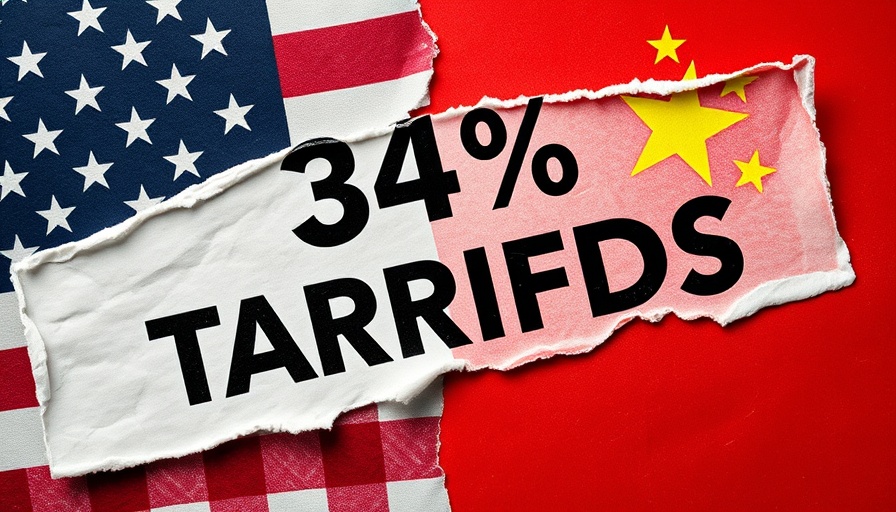
Trump’s Tariff Impact: A New Era in Global Trade
On Saturday, April 5, 2025, U.S. customs agents began implementing President Donald Trump's controversial 10% tariff on imports from various countries. This move marks a significant departure from the established post-World War II global trade norms that typically emphasize mutually agreed tariff rates. Notably, higher tariffs on goods from 57 of the U.S.'s largest trading partners are slated to commence shortly, further escalating tension in a climate already marked by economic uncertainty.
Kelly Ann Shaw, a leading trade lawyer and former White House trade adviser, characterized this initiative as “the single biggest trade action of our lifetime.” At a Brookings Institution event, she highlighted expectations that these tariffs would transform over time as impacted countries initiate negotiations to reduce rates. The initial reactions in global stock markets were drastic, with a staggering decline of $5 trillion for the S&P 500 index companies over two days, illustrating the ripple effect of such a significant policy shift.
The Ripple Effects on Global Markets
The swift implementation of these tariffs sent shockwaves through financial markets, reflecting deep concerns among investors regarding the pervasive ramifications on international trade relationships. Such abrupt policies have historically led to increased volatility in stock prices, a reality backed by prior market trends during tariff escalations. Many investors are now left assessing their portfolios amidst fears of heightened risks, pushing them to explore strategies that might mitigate losses amidst this newfound uncertainty.
Investment Strategies Amidst Tariff Changes
For many investors, managing their portfolios in light of ongoing tariff fluctuations may seem daunting. However, understanding the changing economic landscape can provide actionable insights. Here are a few strategies to consider:
- Asset Allocation: Diversifying investments across various asset classes can help cushion portfolio impacts from regional shocks.
- Sector-Based Investing: In this turbulent environment, sectors such as healthcare and technology might offer safer havens, while industries heavily reliant on international trade could face significant headwinds.
- Global Investing Opportunities: Investors should consider exploring emerging markets, which may present lucrative opportunities as traditional markets grapple with domestic tariffs.
Understanding Stock Market Trends
The stock market is often a reflection of investor sentiment, and the recent tariff announcements demonstrate how swiftly volatility can swing. Market corrections often follow such high-impact news. Holding a diversified portfolio that includes low-risk sectors and stable dividend-paying stocks can provide balance during such corrections. Creating a strategy around dollar-cost averaging can also help take advantage of fluctuating prices, smoothing out potential losses over time.
Emotional and Human Impact of Trade Wars
As financial implications unfold, it is crucial to recognize the human element behind these trade maneuvers. Businesses, particularly small enterprises that rely heavily on international supply chains, stand to face significant challenges that could affect their operational capabilities and workforce stability. The true inquiry is how these tariffs will impact consumers and whether price hikes will lead to a slowdown in consumer confidence.
Looking Ahead: Future Predictions in Trade
As nations potentially scramble to negotiate tariff reductions, future trade relationships may transform dramatically. Experts anticipate markets will evolve in response to these tariffs, and navigating this shifting landscape will require astute investment. Keeping a close eye on international trade agreements and new policies will be key in identifying sectors poised for growth in the ensuing phase.
Conclusion: Navigating a Changing Investment Landscape
In a world where trade norms are being reshaped overnight, the ability to adapt your investment strategy is more pivotal than ever. Investors should focus on diversification, monitoring economic indicators closely, and looking for unique opportunities in a changing global market landscape. Preparedness and responsiveness to emerging market trends will be the hallmarks of successful investing in this new era.
 Add Row
Add Row  Add
Add 



Write A Comment